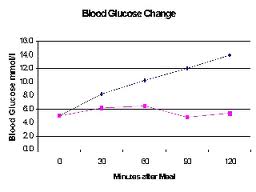Diabetic food log

A diabetic food log is a great way to keep your blood glucose readings managed and easily within reach in case something should happen. Diabetic food logs are a great way to keep your numbers handy in case you need to compare your readings with past readings or readings that you doctor may need to see in order to diagnose you for something or help you take care and manage your diabetes.
Diabetic food logs are a great way to write down the foods that you eat for your meals and snacks so that you can them relate them to your blood glucose readings in order pinpoint which foods are the best for your diabetes.
Diabetic food logs are great especially for new diabetics who are having a tough time getting started managing their diabetes. Once you learn you are a diabetic you may have trouble learning what you can and can’t eat because so many different things contain various amounts of sugar while others may not. By keeping a diabetic food log you can know what triggers your sugar and what does not. When a diabetic first starts keeping up with their blood glucose readings it may bounce around a lot but overtime as you learn what to and what not to eat it really helps them because it allows them to learn what is best for them and what may not be.
Diabetic food logs can be printed off online through various websites such as the American diabetes association, diabetic websites, your local pharmacy, your doctor or physician or you can make one yourself. Diabetic food logs need to be kept on a regular basis so that you can keep accurate results of your blood glucose readings. Keeping a food log can help you maintain your diabetes healthy and safely.




